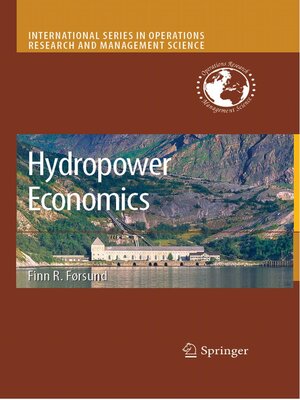Hydropower Economics
ebook ∣ International Series in Operations Research & Management Science
By Finn R. Forsund

Sign up to save your library
With an OverDrive account, you can save your favorite libraries for at-a-glance information about availability. Find out more about OverDrive accounts.
Find this title in Libby, the library reading app by OverDrive.



Search for a digital library with this title
Title found at these libraries:
| Loading... |
The state organisation responsible for coordinating the hydropower el- tricity system in Norway ("Samkjøringen") contacted me in 1990 about the advanced plan for deregulating the electricity system, separating gene- tion, transmission, and distribution and introducing a wholesale market for electricity. It was felt that insights about the fundamental nature of running an electricity system based on hydropower was somewhat lacking within the team of academic economists engaged to write background reports by the Oil and Energy ministry responsible for driving the reform of the el- tricity system. When talking to engineers I was fascinated by the world of electricity, with its physical laws and weird concepts such as reactive power and el- tric phase angles. Externalities of hydraulic interdependence between river-based power stations and highly fluctuating loss and congestion - ternalities involved in a meshed transmission network had to be rec- nised. Furthermore, capturing all these elements required advanced mathematical methods of dynamic programming in a stochastic envir- ment. My conclusion was that a market design that neglected these aspects did it at its own peril. I predicted volatile prices coming out of a compe- tion between producers facing zero short-run variable costs and problems with investments coming forth sufficiently from a social perspective. However, I can safely say that my report had no impact whatsoever on the Norwegian electricity reform of 1991, that must be regarded, not the least by me, as being highly successful.






